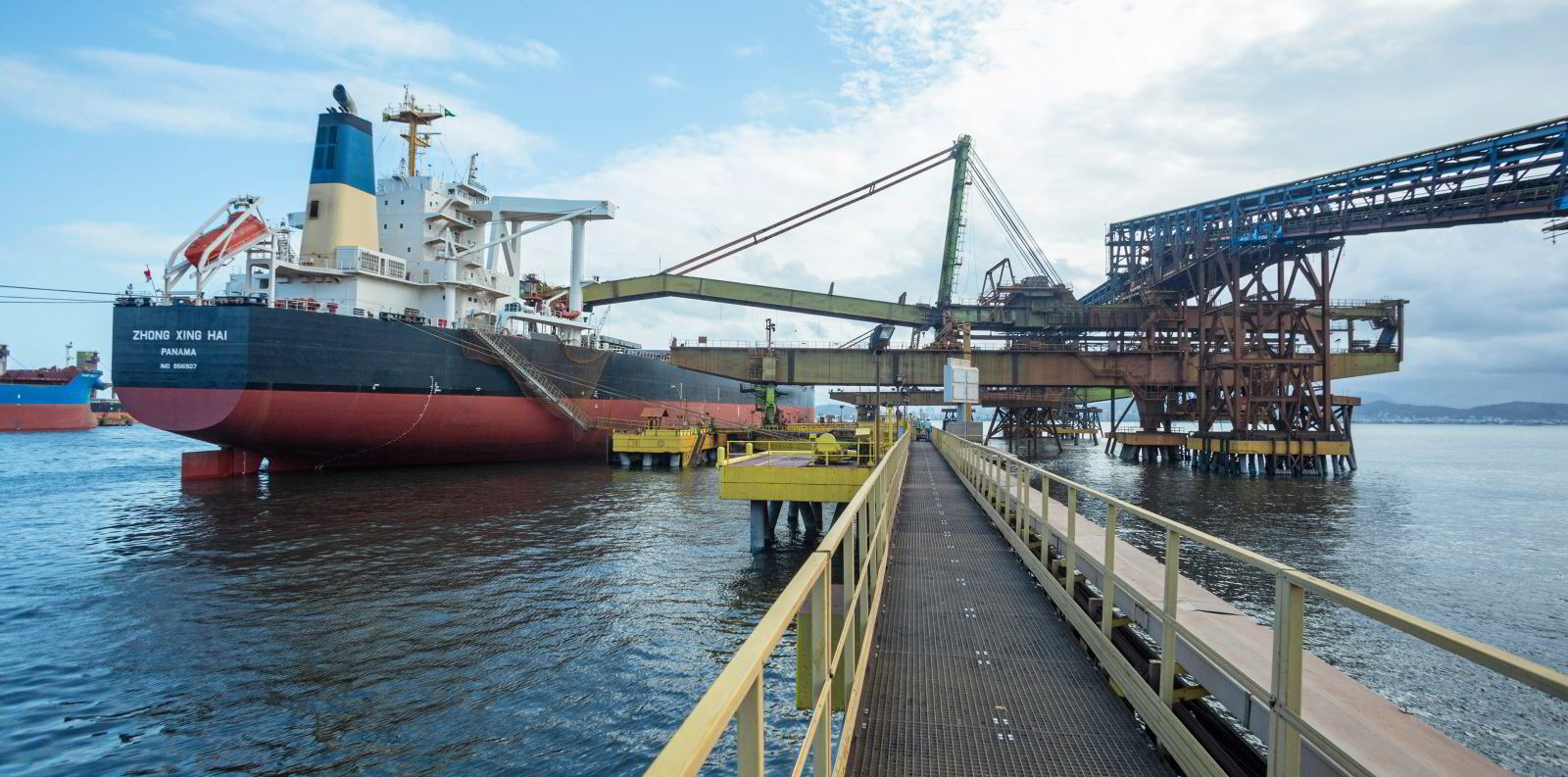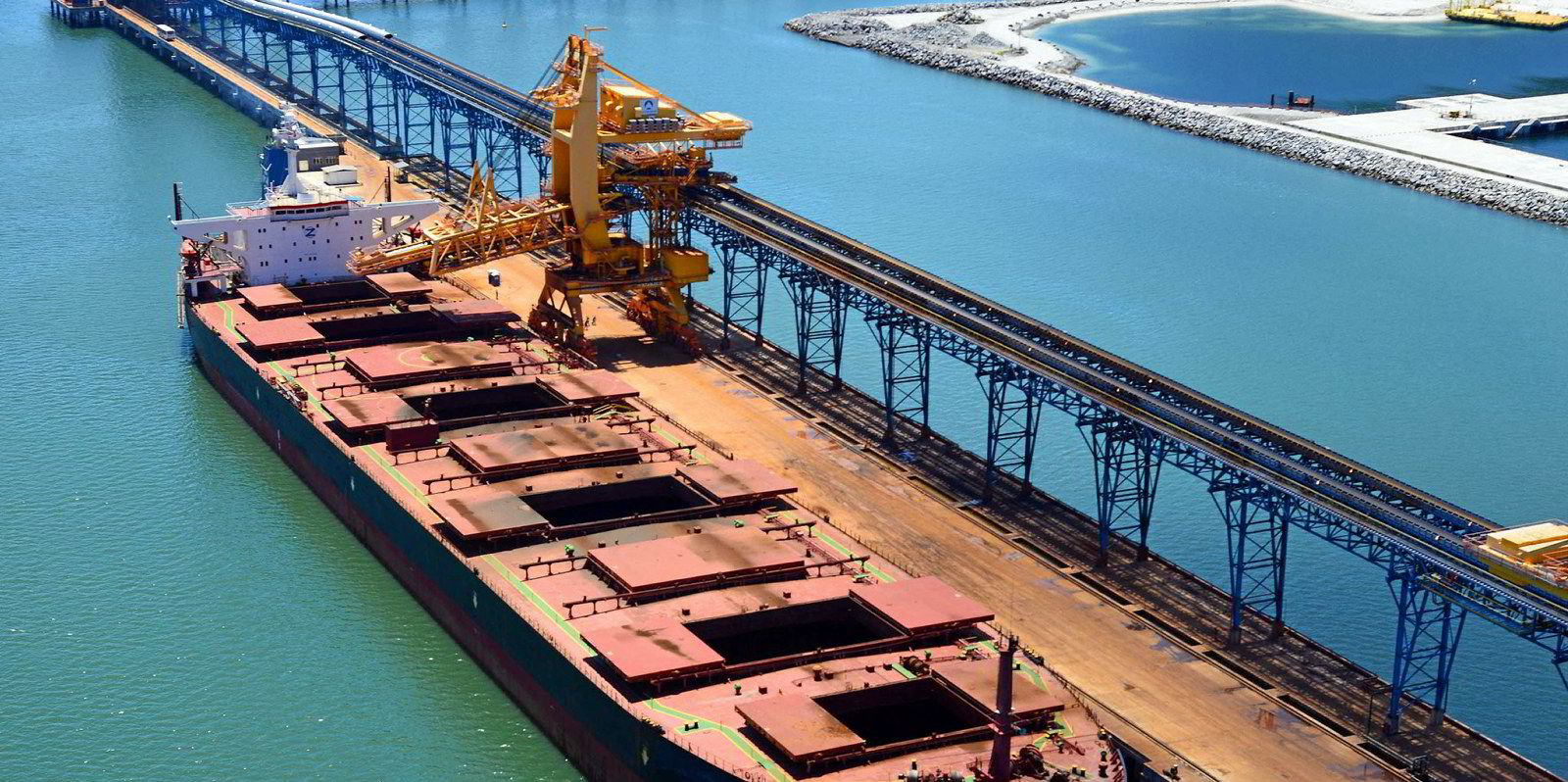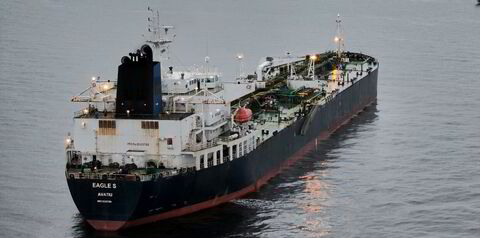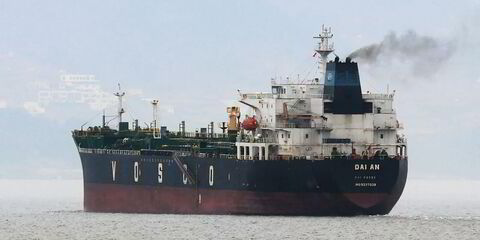A hectic week in the capesize market helped the Baltic Dry Index (BDI) rise above 4,000 points on Friday for the first time since June 2010.
The index, which gives an overall indication of the strength of dry cargo markets, climbed by 116 points to reach 4,092.
The increase comes principally on the back of another big rise in capesize spot rates, which contribute 40% of the BDI's calculation alongside panamax and supramax assessments, each accounting for 30%.
Baltic panellists assessed the 5TC weighted average spot rate across five key capesize routes at $49,731 per day on Friday, up by $2,370 since Thursday.
The assessment marks the end of a week of record gains for the capesize market.
The 5TC assessment has risen by $9,494 since Monday, surpassing the old one-week record of $9,333 set in October 2020.
Frantic fixtures
Steady chartering activity and increasingly firm rates have driven up the Baltic assessments this week, especially for iron ore cargoes from Brazil and Western Australia.
Ships ballasting to Brazil and in the north Atlantic have been in short supply, causing spot rates on the Baltic's Brazil to China benchmark for iron ore to increase to $36.125 per tonne on Friday, up by $1.28 since the previous day.

Word circulated in the market on Friday that Brazilian miner Vale fixed capesizes for China trips at strong levels.
Fixtures reported by Baltic panellists on Friday showed three new capesize deals for the miner, all fixed on Thursday at $35 per tonne for loading dates in mid-September.
Panellists assessed time charter trips from the European continent and Mediterranean to ports in China and Japan $2,400 higher on Friday at a stunning $74,850 per day.
Meanwhile, in the Pacific, the Baltic's Western Australia to China voyage route for iron ore climbed to $15.823 on Friday, up by $0.58 since Thursday.
Panellists added a huge $3,001 to their assessment of transpacific round voyages from China/Japan, which were estimated at $52,025 per day on Friday.
Relets
The rapid increase in spot rates has enabled market players to make a quick profit by reletting vessels.
NYK Line's 176,800-dwt Shiosai (built 2009) was reportedly fixed to Cargill on Thursday for a trip from Tubarao, Brazil to China at $35 per tonne, loading from 7 September with an option to call in West Africa.
The vessel was relet in the market by Louis Dreyfus Commodities (LDC), which had booked the vessel on 13 August for the same trip at $32.50 per tonne.
Reletting the vessel to Cargill will generate a profit of $425,000 for LDC, based on a 170,000-tonne cargo.
The week's capesize chartering activity is set against a spectacular fall in prices for iron ore as China seeks to curb pollution by reducing steel production.
The spot price for ore with 62% iron content slumped by 14% on Thursday alone and on Friday was trading at $160.38 per tonne.
The benchmark has lost around one-third of its value since the record high of $237.57 per tonne on May 12.
The outlook for Chinese iron ore demand looks unclear in the face of conflicting domestic policies on infrastructural investment, steel production, pollution and market speculation.






